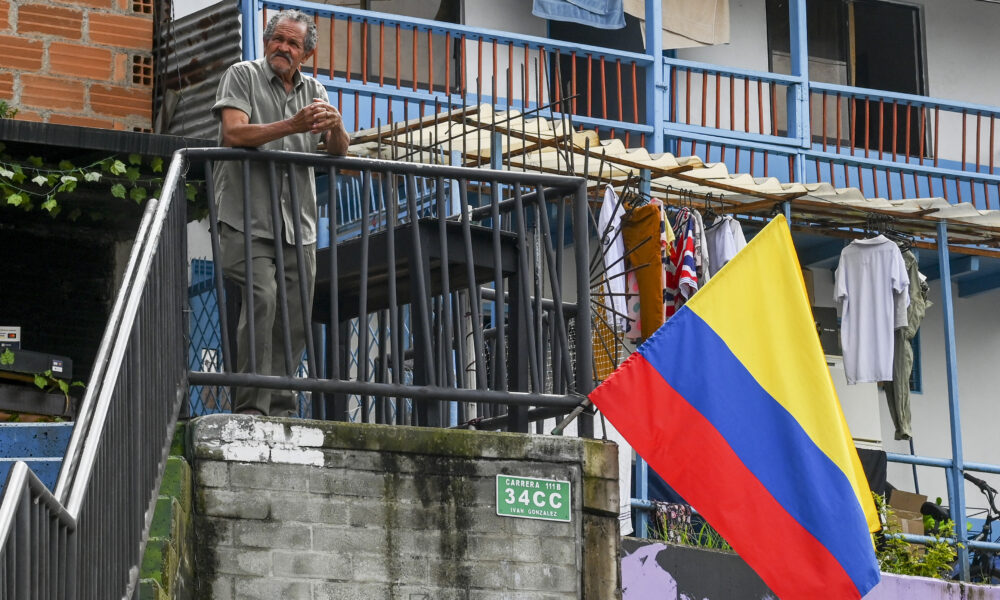International
Murder rate plummets amid ‘gangster peace’ in Medellin
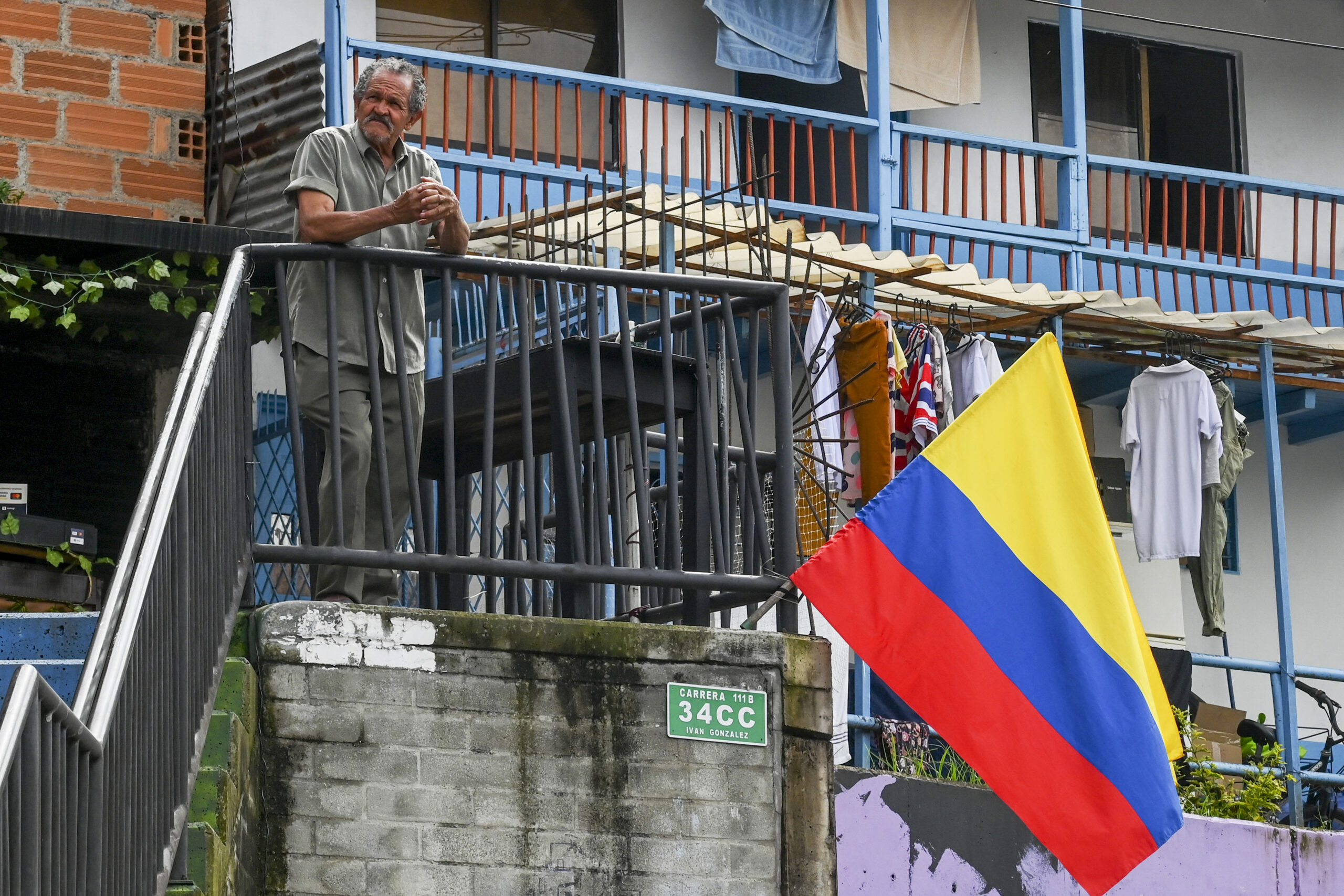
AFP | Hervé Bar
Seven days without a single murder: The month of August marked a security record for Colombia’s second city Medellin, the onetime fiefdom of infamous drug lord Pablo Escobar.
“In Medellin, security is measured in lives” saved, said Mayor Daniel Quintero as he welcomed the breakthrough.
Medellin has seen a vertiginous drop in homicides by 97 percent in the 30 years since Escobar’s death, transforming what used to be one of the most violent cities in the world into a popular tourist destination.
The success is attributed in large part to an unofficial but mutually beneficial understanding between narco gangs, paramilitaries and the security services.
“Peace is good for business,” explained Medellin drug dealer “Joaquin” (not his real name) of the traffickers’ motivation for avoiding violence.
Joaquin is 37 years old — two of those spent behind bars. He wears an oversized baseball cap and sagging jeans.
A Beretta pistol peaks out from under his hoodie.
Joaquin is a “capo,” a junior boss supervising drug trafficking in the streets of “Comuna 6,” a poor neighborhood perched on a mountain slope in Medellin’s northwest.
He belongs to a gang, which he declined to name, that follows the rules imposed by an organized crime “federation” known as the “Oficina de Envigado” or the “Office of Envigado” after the name of a nearby town.
Joaquin claimed the Oficina and its member gangs acted “in solidarity with the community.”
This included meting out “parallel justice” when the system fails them.
“Escobar? He was much too violent. Too many deaths for nothing,” Joaquin told AFP.
‘The population with us’
“Everyone lives in peace on our territory,” said the capo, keen to portray himself as a good Samaritan.
“We do not want to frighten the traders and the people. We need the population with us.”
Thirty years after Escobar was shot dead on a Medellin rooftop while trying to evade capture, the drug trade still dominates many poor neighborhoods of the city of nearly three million people.
A stone’s throw from a football pitch where mothers watch their children play, heavy foot traffic at a small, nondescript house indicates the presence of a drug den.
A black garbage bag covers the window where money trades hands. The purchased merchandise drops down from another floor in a tin can on the end of a string.
A variety of product can be found here: marijuana, cocaine and “tucibi” or “basuco” — two cheap and particularly toxic new drugs akin to unrefined “crack.”
“Everything is organized, it’s like a business. There are those who take care of the sale, the logistics, the soldiers. The bosses pay our salaries, we do the job,” said Joaquin.
He and his colleagues move with incredible ease and assurance through the maze of sloping alleys and small, rickety brick houses. Neighborhood teenagers skulk around, acting as security.
Joaquin and his accomplices pop into one shop after another, shaking hands with acquaintances everywhere while they casually slip a gun into a bag here, deliver a package there.
For the most part, Medellin’s dealers are able to operate in peace due to an understanding among rival gangs as well as with members of the security forces — many of them on the take.
As long as they keep the streets peaceful, the gangs say police turn a blind eye to their lucrative illegal dealings.
Joaquin calls it a “gangster peace.”
“There is nothing better than peace,” added “Javier,” an associate who met up with Joaquin and another colleague in a squatted house.
They pack out their guns on a table between religious trinkets in a filthy, lightless living room where horse posters vie with a crude rendition of the Last Supper on the wall.
“Every group manages its territory as it wishes… The bosses talk among themselves. Everything is arranged calmly,” said Javier.
‘City of bandits’
After Escobar’s demise, the face of organized crime in Medellin changed. Long controlled by a single cartel, the drug trade is now shared between several gangs under the umbrella of the Office.
The gangs had previously collaborated with paramilitary groups and the security forces to help bring an end to Escobar’s Medellin Cartel and oust leftist guerrilla groups that had tried to fill the power void it left.
As things settled down and every group found its place in the new reality, Medellin’s homicide rate dropped from 350 per 100,000 inhabitants in 1992 to 10.2 per 100,000 so far this year — nearly half the national average.
“The armed groups set the peace and war agenda in the city,” said Luis Fernando Quijano, director of the Corporation for Peace and Social Development, an NGO.
Colombia’s new leftist president, Gustavo Petro, has vowed to bring “total peace” to conflict- and crime-ridden Colombia, including by offering an amnesty to gangsters willing to give themselves up and abandon the trade.
“We are willing to listen. We will do what the bosses decide,” Pedro said of the plan.
But for Joaquin, “to think that everyone will give themselves up is a dream.”
“Never forget one thing: Medellin is and will always be the city of bandits,” he insisted.
International
Japan reopens Kashiwazaki-Kariwa Plant despite public concerns
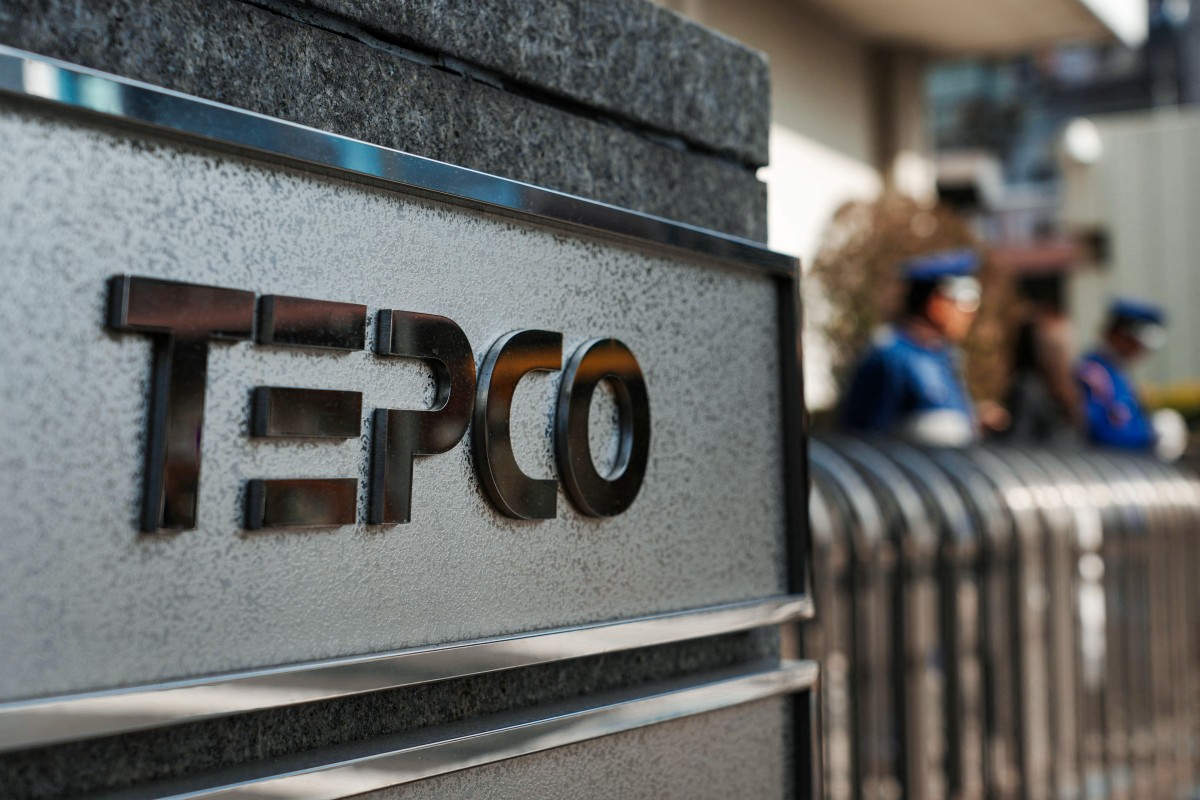
La centrale nucléaire japonaise de Kashiwazaki-Kariwa, la plus grande au monde, a repris ses activités mercredi pour la première fois depuis la catastrophe de Fukushima en 2011, malgré les inquiétudes persistantes d’une partie de la population.
La remise en service a eu lieu à 19h02 heure locale (10h02 GMT), a indiqué à l’AFP Tatsuya Matoba, porte-parole de la compagnie Tokyo Electric Power (Tepco).
Le gouverneur de la préfecture de Niigata, où se situe la centrale, avait donné son feu vert à la reprise le mois dernier, en dépit d’une opinion publique divisée. Selon une enquête menée en septembre par la préfecture elle-même, 60 % des habitants se déclaraient opposés au redémarrage, contre 37 % favorables.
Mardi, plusieurs dizaines de manifestants ont bravé le froid et la neige pour protester près de l’entrée du site, sur les rives de la mer du Japon.
« L’électricité de Tokyo est produite à Kashiwazaki. Pourquoi seuls les habitants d’ici devraient-ils être exposés au danger ? Cela n’a aucun sens », a déclaré à l’AFP Yumiko Abe, une riveraine de 73 ans.
La centrale de Kashiwazaki-Kariwa avait été mise à l’arrêt lorsque le Japon a fermé l’ensemble de ses réacteurs nucléaires à la suite du triple désastre de mars 2011 — un séisme, un tsunami et un accident nucléaire — survenu à Fukushima.
International
Markets rise as Trump halts Europe tariffs and floats Greenland agreement framework
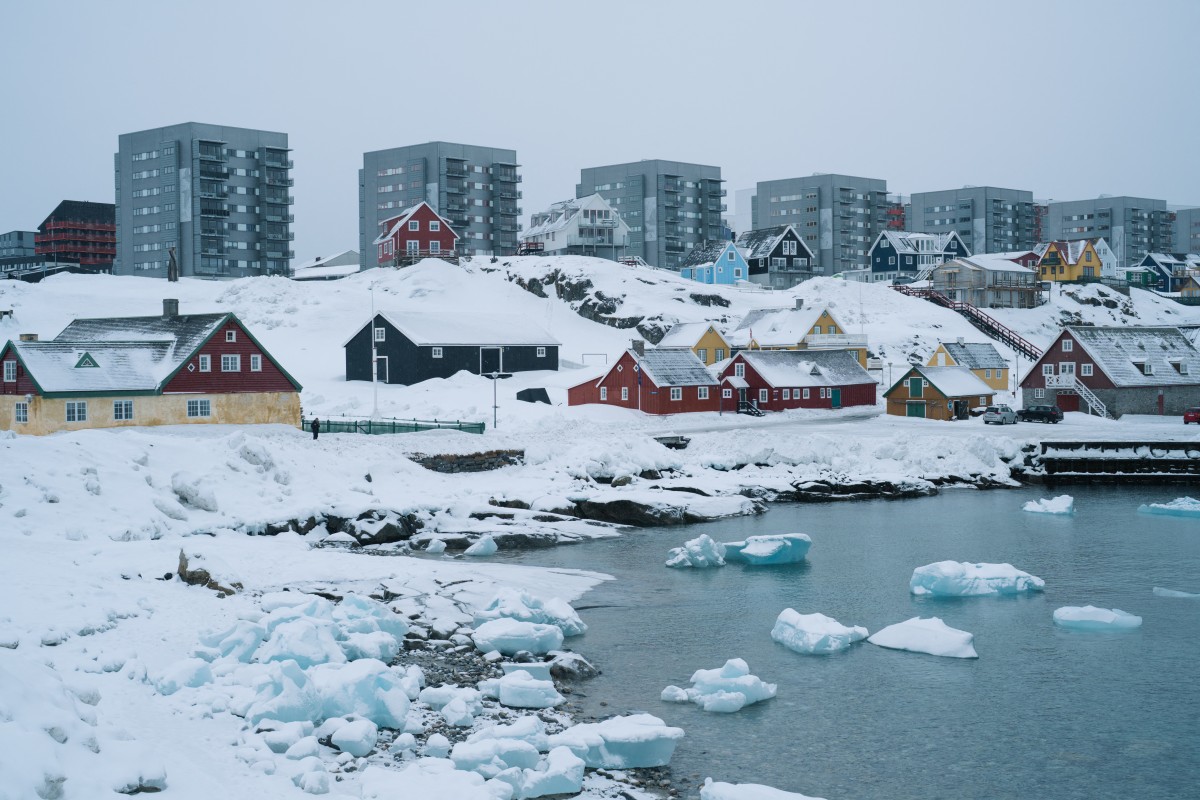
U.S. President Donald Trump on Wednesday lifted his threat to impose new tariffs on several European countries and said he had outlined the framework of a future agreement on Greenland during a meeting in Davos with NATO Secretary General Mark Rutte.
“Based on this understanding, I will not impose the tariffs that were scheduled to take effect on February 1,” Trump wrote on his social media platform Truth Social, without providing details about the proposed “framework.”
The announcement boosted financial markets. Wall Street, which had been trading slightly higher, extended its gains following Trump’s message, while the U.S. dollar strengthened against the euro.
Trump has repeatedly insisted that Greenland, rich in mineral resources, is ‘vital’ to the security of the United States and NATO, particularly as Arctic ice melts and global powers compete for strategic advantage in the region amid rising tensions with China and Russia.
Last week, the U.S. president threatened to impose tariffs of up to 25% on eight European countries for supporting Denmark and sending a military exploratory mission to Greenland. All of the targeted countries are NATO members, including the United Kingdom, Germany, and France, Europe’s largest economies.
Trump said on Wednesday that additional discussions are underway regarding the “Golden Dome” missile defense system, specifically in connection with Greenland.
He assigned Vice President JD Vance, Secretary of State Marco Rubio, and special envoy Steve Witkoff to lead the negotiations.
Hours before his post, Trump ruled out the use of force to seize Greenland for the first time, but demanded “immediate negotiations” for its acquisition, reiterating his view that only the United States can guarantee the security of the Arctic island.
International
Venezuela’s interim president predicts 37% increase in revenues for 2026
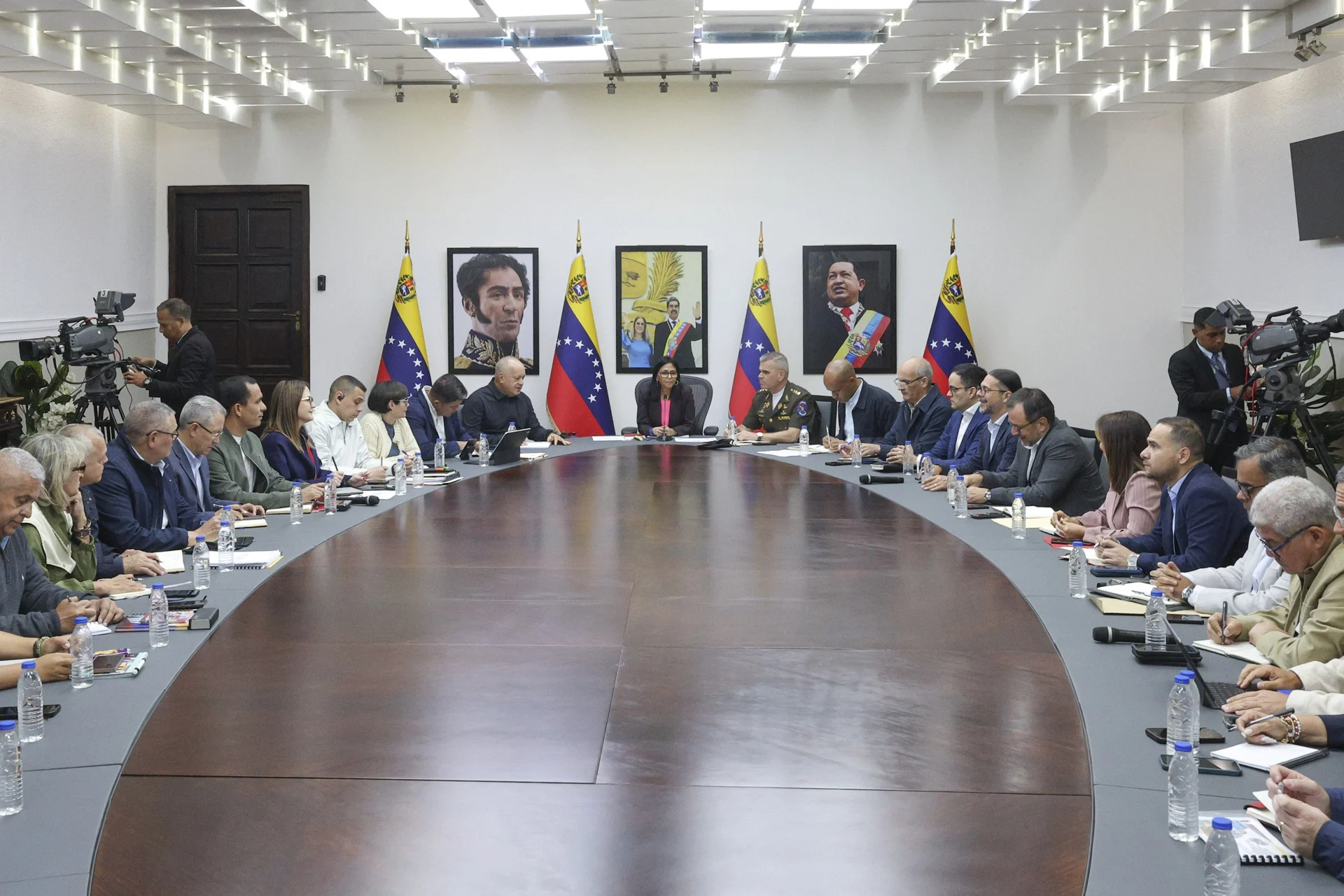
Venezuela’s interim president, Delcy Rodríguez, said Wednesday that the country’s revenues are expected to increase by about 37% in 2026, in a statement made during a session of the Federal Government Council at the Miraflores Presidential Palace in Caracas.
Rodríguez said the projected rise in foreign currency income comes as agreements on Venezuelan oil sales with the United States are being implemented, including deals in which Washington will trade Venezuelan crude and manage the proceeds before transferring funds to Caracas.
“This year, revenues expressed in foreign currency will increase by 37%,” Rodríguez declared, according to EFE. She noted that the increase will also benefit regional governments and local authorities. “You will have more resources for your management, which I know you need,” she added.
Rodríguez said the distribution formula for revenues will remain the same as in 2025: 53% for communes, 29% for state governments, 15% for municipalities, and 3% for institutional strengthening. She also said the government would intervene to “correct imbalances” in how funds are allocated, particularly among some municipal and regional authorities.
The announcement follows reporting that Venezuela received at least $300 million from oil revenues tied to a U.S.–Venezuela deal that could involve up to 50 million barrels of crude. Washington officials have said the interim government met U.S. requirements under the agreement.
-

 Central America4 days ago
Central America4 days agoGuatemala raises police death toll to nine after gang violence escalates
-

 International4 days ago
International4 days agoDeath toll from southern Spain train crash rises to 40
-
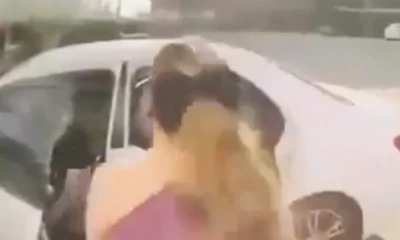
 International2 days ago
International2 days agoMexican influencer “La Nicholette” kidnapped in exclusive area of Culiacán
-

 Central America5 days ago
Central America5 days agoGuatemala prison uprisings leave 46 guards held by gangs
-

 International4 days ago
International4 days agoOver 160 christian worshippers kidnapped in Kaduna Church attacks
-
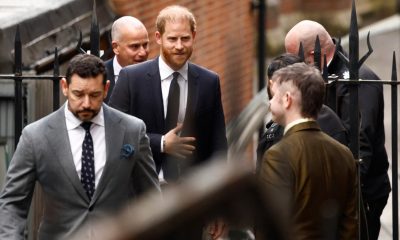
 International3 days ago
International3 days agoDaily Mail publisher insists reports relied on legitimate sources amid privacy trial
-
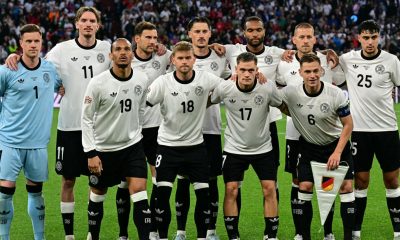
 International3 days ago
International3 days agoGermany says football bodies alone will decide on possible World Cup boycott
-

 International5 days ago
International5 days agoChile declares state of catastrophe as wildfires rage in Ñuble and Biobío
-

 International2 days ago
International2 days agoMajor winter storm to blanket U.S. and Canada with snow, ice and arctic cold
-

 Central America1 day ago
Central America1 day agoMazatenango Carnival cancelled amid State of Siege in Guatemala
-

 International1 day ago
International1 day agoMarkets rise as Trump halts Europe tariffs and floats Greenland agreement framework
-

 International2 days ago
International2 days agoTrump announces preliminary NATO agreement on Greenland, suspends tariffs on Europe
-

 International4 days ago
International4 days agoSpain’s Prime Minister pledges transparency after train crash kills at least 39
-

 International1 day ago
International1 day agoVenezuela’s interim president predicts 37% increase in revenues for 2026
-
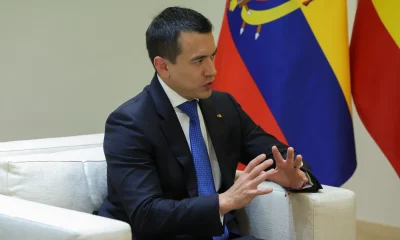
 International2 days ago
International2 days agoColombia slams Ecuador’s 30% tariff as ‘economic aggression’
-

 International1 day ago
International1 day agoTrump to invite Venezuela’s interim president Delcy Rodríguez to Washington
-

 International1 day ago
International1 day agoJapan reopens Kashiwazaki-Kariwa Plant despite public concerns
-

 International1 day ago
International1 day agoFour minors killed in deadly clash between FARC dissidents in Colombia’s Amazon
-
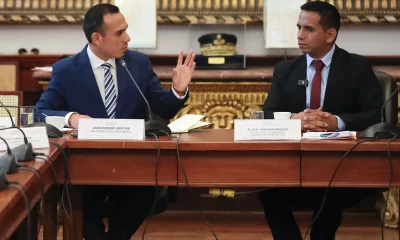
 International2 days ago
International2 days agoJosé Jerí claims destabilization attempt after videos of secretive meetings surface













